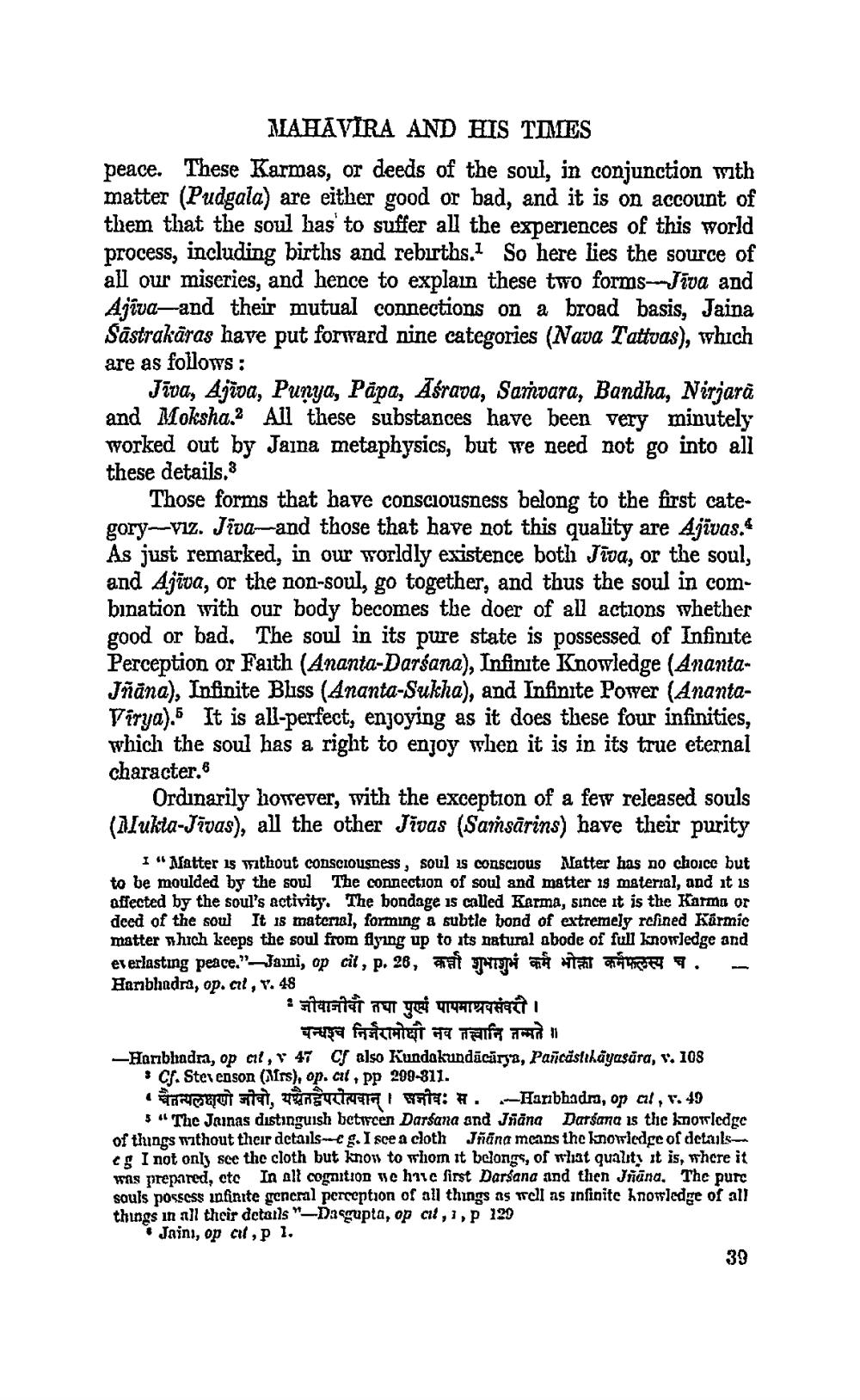________________ MAHAVIRA AND HIS TIMES peace. These Karmas, or deeds of the soul, in conjunction with matter (Pudgala) are either good or bad, and it is on account of them that the soul has to suffer all the experiences of this world process, including births and rebirths. So here lies the source of all our miseries, and hence to explain these two forms-Jiva and Ajiva--and their mutual connections on a broad basis, Jaina Sastrakaras have put forward nine categories (Nava Tattvas), which are as follows: Juva, Ajiva, Punya, Papa, Asrava, Samvara, Bandha, Nirjara and Moksha.? All these substances have been very minutely worked out by Jaina metaphysics, but we need not go into all these details. Those forms that have consciousness belong to the first category~-viz. Jiva--and those that have not this quality are Ajivas. As just remarked, in our worldly existence both Jiva, or the soul, and Ajiua, or the non-soul, go together, and thus the soul in combination with our body becomes the doer of all actions whether good or bad. The soul in its pure state is possessed of Infinite Perception or Faith (Ananta-Darsana), Infinite Knowledge (AnantaJnana), Infinite Bliss (Ananta-Sukha), and Infinite Power (AnantaVirya). It is all-perfect, enjoying as it does these four infinities, which the soul has a right to enjoy when it is in its true eternal character.8 Ordinarily however, with the exception of a fey released souls (Alukta-Jivas), all the other Jivas (Samsarins) have their purity 1 "Matter is without consciousness, soul is conscious Matter has no choice but to be moulded by the soul The connection of soul and matter is material, and it is affected by the soul's activity. The bondage is called Karma, since it is the Karma or deed of the soul It is material, forming a subtle bond of extremely rclined Kirmic matter which keeps the soul from flying up to its natural abode of full knowledge and everlasting peace."-Jauni, op cit, p. 26, THIET T T . - Hanbhadra, op.at, V. 48 ? FAIT og H 414424h धन्धश्च निजेरामोधी नव तलानि जन्मते॥ - Harbhadra, op cit, 47 Cf also Kundakundacarya, Pancashkayasara, . 108 * C. Stevenson (Mrs), op. cit, pp 209-811. Na ilet, USKLIKEESTI wa #. -Hanbhadra, op al, . 49 5 "The Jainas distinguish betiycen Darsana and Jflana Darsana is the knowledge of thungs without their details-eg. I sce a cloth Jnana means the knowledge of details. O I not only see the cloth but know to whom it belongs, of what quality it is, where it was prepared, ctc In all cognition we hic first Darsana and then Jrana. The pure souls possess infinite general perception of all things as well as infinite knowledge of all thloes in all their details - Dasgupta, op cul,1, 129 Jaini, op el, pl.




